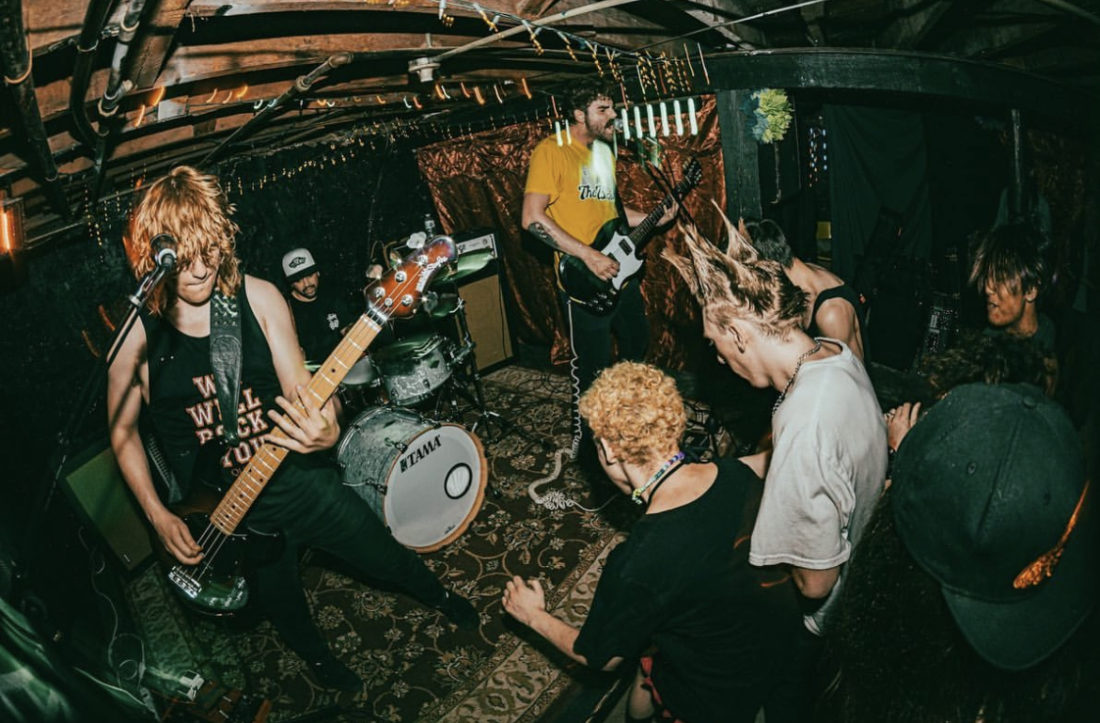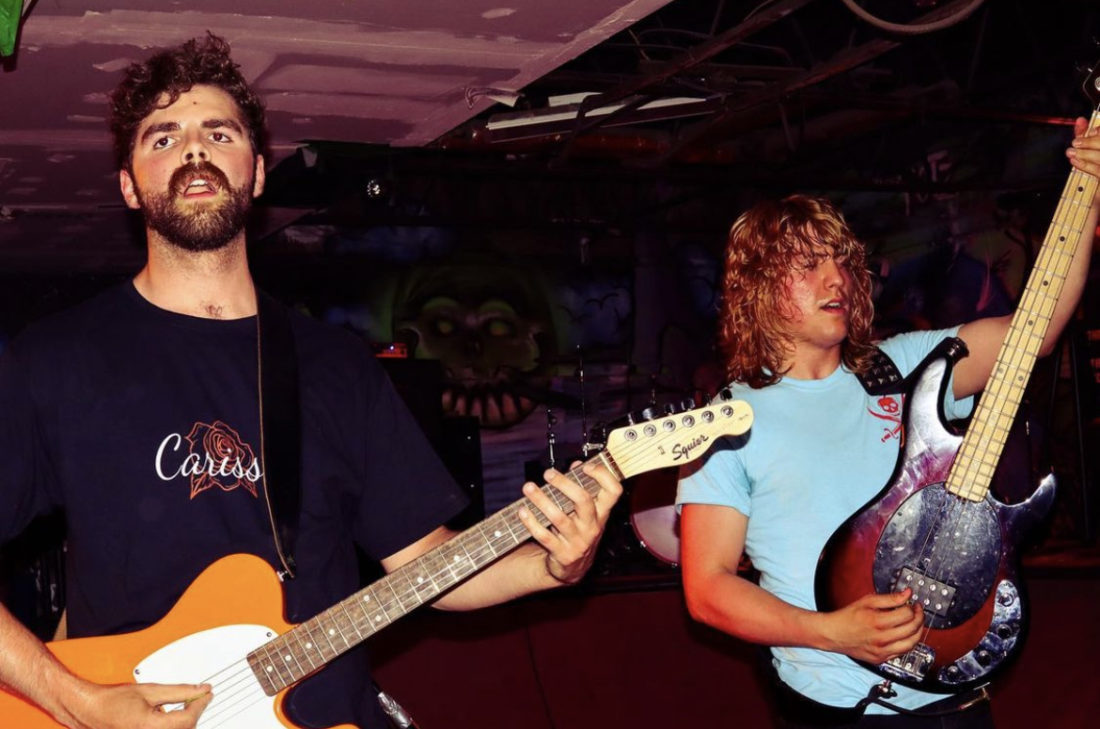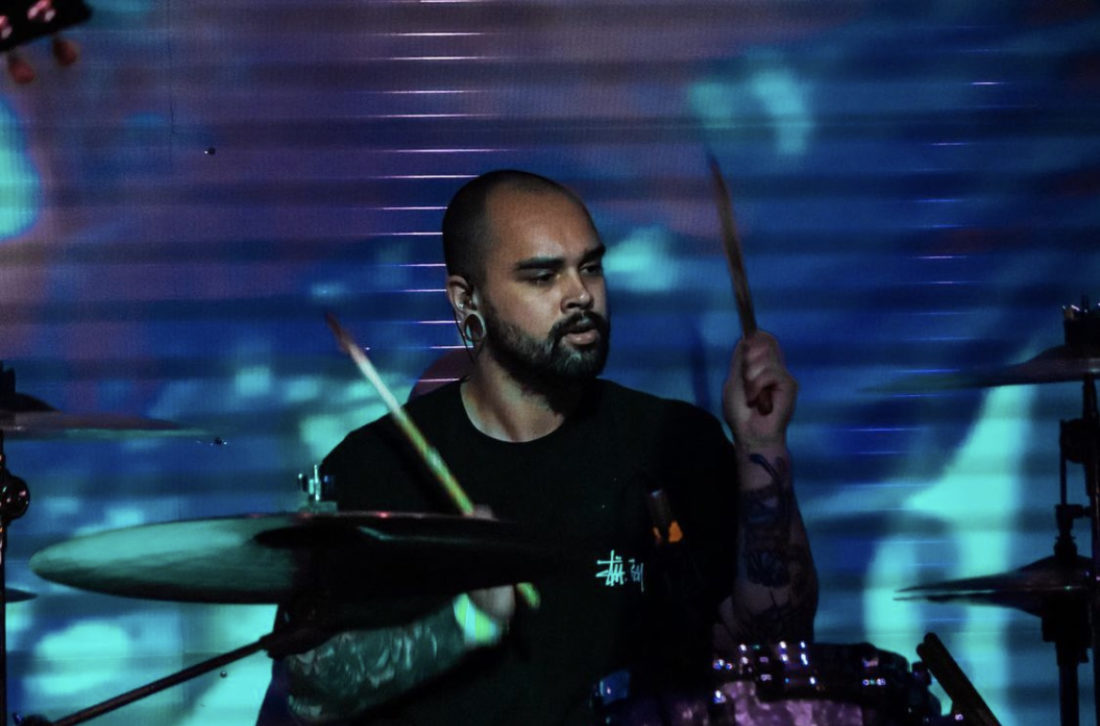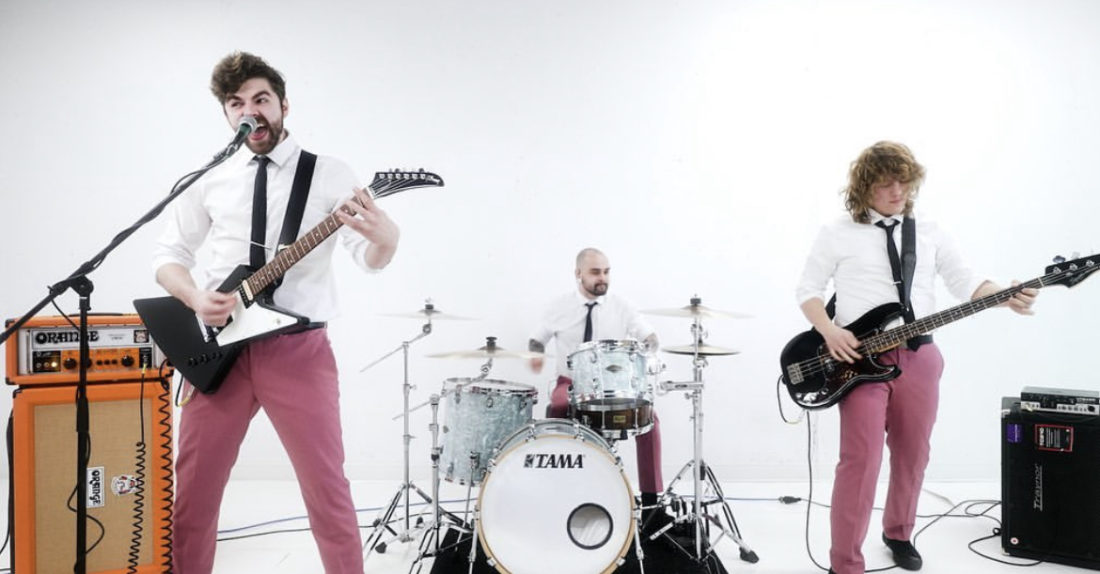
In the mid 2000s, music genres like emo, pop-punk, nu metal and post-hardcore were embraced in the mainstream music scene and experiencing their heyday. Bands like Pierce the Veil, Three Days Grace, My Chemical Romance and Green Day made music that was heavily rock-inspired, melancholic, and —most importantly— angsty.
The economic, social and political state of the world was tumultuous, and the edgy music of the decade reflected that. It was a time where protesting was common, and the challenging of social norms was flourishing among the college-age millennial generation. “Counterculture” was experiencing a 21st-century renaissance.
However, in the early 2010s this seemed to die down. There was a newfound peace among the masses. The grungy, punk-inspired, hardcore movement that defined the aughts was left behind, existing as “just a phase” in the memory of social culture as the new zeitgeist favoured colourful pop music and an attentiveness to rap and hip-hop.
But like all great movements, the hardcore scene of the 2000s did not die out; it merely went undergound, hibernating, waiting for resurgence.
Now, in the 2020s, the aesthetics and musical tastes of yesteryear have been making a comeback. Hardcore, pop-punk and emo are back in style, but their communities, histories and effects on the modern culture remain elusive to those uninvolved and unfamiliar.
Recently, I ventured into Saskatoon’s underground music scene to uncover more about this cultural shift. My guide down this rabbithole was homegrown post-harcore band Alien to the Ignorant, who helped me learn more about their lifestyles, their niche genre and the hardcore music community of today.

Alien to the Ignorant was founded in Saskatoon in 2017 by Swade Orchard, the bands lead vocalist and guitarist, following a lifetime of fascination with hardcore music. “I used to play Senses Fail on Guitar Hero 3 when I was really young,” Orchard said. “I would play Can’t be Saved on expert difficulty without looking at the screen because I played it so often.”
Orchard, inspired by his skills on the game, turned his hands away from the controller and onto the strings, teaching himself to play the guitar and sing like the bands he enjoyed.
“I taught myself to scream, and do it more pronounced in this post-hardcore, emo-sense. Then I changed my guitar style, made some posts on Instagram and a guy asked me to jam; and that was that.” Orchard explained, detailing his early years in the Saskatoon hardcore scene.
Interestingly, Johnny Becker, the band’s drummer, shared a similar story on his beginnings with music, “Rock Band [the video game] is how I started drumming. I just went on the practice mode and I could do whatever I wanted.”
In contrast to Orchard and Becker, the band’s bassist, Myk Ulan, explained that he’d “always been familiar with instruments” as he came from a family that was “pretty musical” and would spend time together watching rock performances on TV.
”We all liked watching Much-Music, watching the rewind that played KISS and ACDC. Then we saw Billy Talent on Much-Loud and I pretty much never looked back,” Ulan said. “The bug never stopped. I got into Iron Maiden, SUM-41, and started playing at the Long and McQuade Rock School.”
With these humble, intriguing, and unexpected introductions to hardcore music, the members made footholds in Saskatoon’s music scene by performing in seperate bands. Eventually, Orchard recognized the talent of Ulan and Becker and invited them to join his band, which brought to life Alien to the Ignorant as it exists today.

Now the band has gained its own following in the North American underground scene.
Just a month prior to me interviewing them they had spent 40 days on the road touring throughout Canada and the United States on a journey perfectly befitting the independent, grungy, and hardcore lifestyle embraced by the underground community.
“We travelled all packed together in a Ford F-150,” Orchard said to me with a smile. “We slept in Walmart parking lots and were cleaning ourselves with wet wipes. Every week or so we found a washing machine we could use, but overall it was a 10 out of 10 experience,” he told me through laughs.
Becker chimed in: “In Philadelphia we only got an hour of sleep. We went to a mall just to get AC for a bit and we all took turns taking naps.”
“We arrived at the venue early there and slept on the stage,” Orchard reminisced. “Softest. Stage. Ever.” Ulan finished.
Fortunately for the guys, the tour was not always marred by discomfort, as numerous people invited the band into their homes to get some shut-eye. “We came across a lot of people that let us stay with them,” Becker told me.
This kindness seemed to resonate with the crew, as when it came to talk about the culture surrounding the underground music scene, the independent nature of it all, the boys spoke only of good things.
“I think the mutual love for the same thing is so obvious [in the post-hardcore community],” Ulan explained to me with admiration. “I don’t think there is a difference between the musicians and the audience. You’re both there for hard, heavy music, to have a good time, and you don’t mind getting a little sweaty.”

In reference to the close-knit nature of the underground scene, Becker said, “pretty much anybody you meet on a tour like ours, if you engage in conversation and hit it off, you’re just friends at that point.” Orchard then summed it up that “the small-time stuff is very self-sustaining. People are there to support each other, have fun, and not make anyone feel unsafe.”
From an outside perspective, this familial nature that exists within a community that enjoys music that is often framed as raucous, loud and delirious seems almost contradictory. The band members affirmed that this is not the case, especially within the music itself.
Orchard told me that post-hardcore “takes the hardcore elements like the screaming, the heavy riffs, and adds some clean vocals and pop or rock melody.” ”He also made clear that just because the lyrics often dive into the melancholic—and even sometimes tip on the edge of unsettling—it comes from a place of empowerment and advocacy, not social disruption.
“I attended USask as a sociology and Indigenous relations major, and the sociological ideas definitely went hand-in-hand with the music. I was inspired by that sort of knowledge; it explained so much about the world that was going on around me, and what was going on within me too,” Orchard said with a sense of confidence and ease. “I always want that aspect to be present in our music, and more-so going forward.”

It was an impactful statement to hear, especially in an interview that was so charmingly light-hearted throughout. Ultimately, I think it was all for the better, as it helped me get to the core identity of the post-hardcore genre, the inspirations behind the resurging underground music scene, and the inclusive and self-empowering message Alien to the Ignorant has to send.
Besides, the band ensures that audiences get a taste of both sides of them—the raunchy and the insightful—whether they’re posting on their Instagram page sporting pink dress suits and facefulls of chicken wings or using their platform to raise funds for various aid-organizations.
If these flavours of the underground music scene interest you, Alien to the Ignorant will be going on a five-stop showcase around Saskatchewan for their Wings and Beer 3 tour, ending at Buds on Broadway on Nov. 9.
The world has changed a lot over the past 20 years. The culture, politics and social norms are incredibly different in comparison to the aughts, and constantly changing at a lightning fast pace. If we want to look for anything to help ground us—even just for a moment—then music can be that anchor; even music that hails from the underground.
Leave a Reply